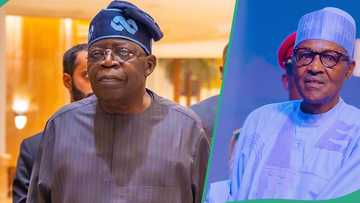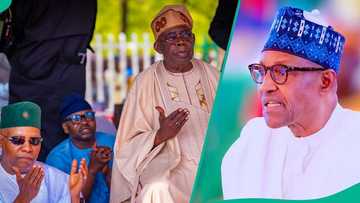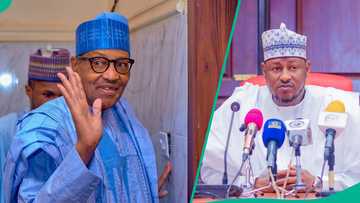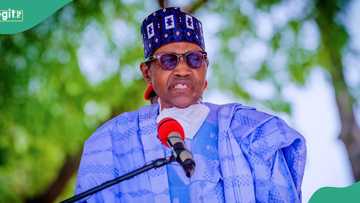8 Facts About Buhari as Nigeria’s Ex-President Dies at 82 in London
- Former Nigerian President Muhammadu Buhari died at 82 in London, leaving behind a legacy defined by military discipline, democratic resilience, and anti-corruption ideals
- Buhari made history in 2015 as the first opposition candidate to unseat an incumbent president, following a long political journey marked by perseverance and public trust
- From soldier to statesman, Buhari held key military and political roles, including Head of State, PTF Chairman, and President, earning national and international honours
Nigeria is mourning the death of former President Muhammadu Buhari, who passed away at the age of 82 in London.
Buhari, a major figure in Nigeria’s political and military history, left behind a legacy shaped by discipline, patriotism, and deep political ambition.
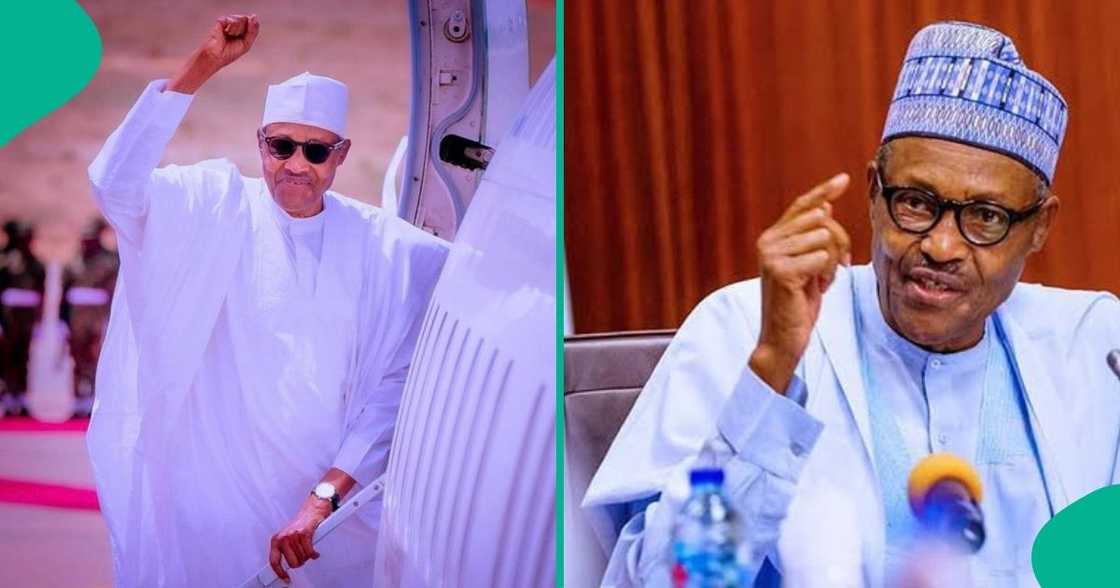
Source: Twitter
From his early military days to his eventual rise as a democratically elected president, Buhari’s life reflected the complexity of Nigeria’s post-independence journey.
As tributes pour in from across the nation and beyond, here are eight key facts that highlight the life and legacy of Nigeria’s former leader:
1. Born into humble beginnings in Katsina
Muhammadu Buhari was born on 17 December 1942 in Daura, Katsina state. He lost his father at the age of four and was raised by his mother, Zulaiha.
He began his early education in Daura and Maidua between 1948 and 1952, and later attended Katsina Middle School.
He completed his secondary education at Katsina Provincial Secondary School (now Government College, Katsina) in 1961, where he earned his West African School Certificate.
Buhari’s personal life was modest and grounded. He married Safinatu Yusuf in 1971, but the marriage ended in 1988.
In 1989, he married Aisha Halilu, with whom he had several children. Across both marriages, Buhari was blessed with ten children, and he maintained a reputation for strict personal discipline and religious devotion throughout his lifetime.
2. First opposition candidate to win power
In 2015, Muhammadu Buhari made history by becoming the first opposition leader in Nigeria to unseat a sitting president.
Running under the All Progressives Congress (APC), Buhari defeated President Goodluck Jonathan of the People’s Democratic Party (PDP) in what was widely considered a peaceful and credible election. He was officially sworn in on 29 May 2015.
This milestone marked a turning point in Nigeria’s democratic journey, reflecting citizens’ growing appetite for political change.
Buhari’s anti-corruption image and reputation for integrity were central to his campaign. His slogan, “Change,” resonated strongly with voters frustrated by years of perceived misgovernance and corruption under the PDP.
3. Rose through military ranks with global training
Buhari joined the Nigerian Army in 1961 and received military training in Nigeria, the United Kingdom, India, and the United States.
His early training included Officer Cadet School in Aldershot, England, and the Army Mechanical Transport School in Borden. He later attended the prestigious Defence Services Staff College in India and the US Army War College between 1979 and 1980, Punch reported.
Throughout his career, Buhari held several prominent positions: Military Secretary, Military Governor of the North Eastern State, and Federal Commissioner for Petroleum Resources.
His role as Chairman of the Nigerian National Petroleum Corporation (NNPC) and later as General Officer Commanding in two divisions solidified his reputation as a disciplined and respected officer in Nigeria’s armed forces.
4. Briefly ruled as Head of State
Following a military coup in December 1983, Buhari emerged as Nigeria’s Head of State and Commander-in-Chief of the Armed Forces.
His short tenure, which lasted until August 1985, was marked by an emphasis on discipline, anti-corruption, and a crackdown on what he termed “indiscipline” across the country.
Though many praised his intentions, critics argued that his regime was too harsh, citing human rights abuses and media suppression.
He was eventually overthrown by General Ibrahim Babangida in a palace coup. Nonetheless, Buhari’s time as military ruler left a strong impression on Nigeria’s political consciousness.
5. Led impactful infrastructure agency under Abacha
In 1994, under the military government of General Sani Abacha, Buhari was appointed Executive Chairman of the Petroleum Trust Fund (PTF).
The fund was created to manage revenue from fuel subsidies and direct it toward national development projects. Buhari’s tenure was noted for transparency and efficiency in fund allocation.
The PTF made significant investments in road construction, education, health, and water supply. Its achievements were felt across all geopolitical zones, and Buhari’s leadership of the agency further cemented his public image as a disciplined and incorruptible figure. The success of the PTF would later become a cornerstone of his political comeback.
6. Endured political defeats before 2015 victory
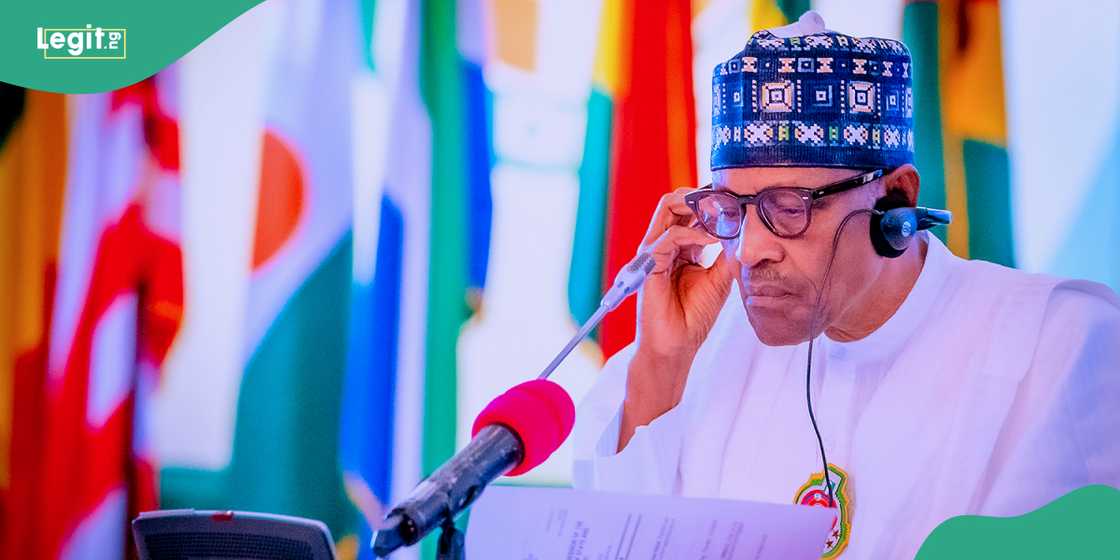
Source: Twitter
Buhari ventured into democratic politics in 2003, contesting for president under the All Nigeria Peoples Party (ANPP).
Despite losing to President Olusegun Obasanjo, he remained a strong opposition voice. He ran again in 2007 and 2011, both times challenging the results and criticising electoral irregularities.
His persistence paid off when, after forming the Congress for Progressive Change (CPC), he joined forces with other opposition leaders to create the APC.
The new alliance gave him a stronger platform and nationwide support. After three failed attempts, Buhari won the 2015 election—proving that perseverance in politics can yield historic results.
7. Formed APC through historic opposition merger
The creation of the All Progressives Congress (APC) in 2013 was a landmark in Nigeria’s political history.
Buhari, alongside leaders from the Action Congress of Nigeria (ACN), CPC, ANPP, a breakaway PDP faction, and others, formed a mega-opposition party with the aim of unseating the PDP.
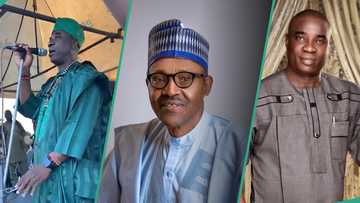
Read also
Buhari’s death: KWAM1 composes dirge for late former head of state, song leaves many talking online
The merger was unprecedented and brought together figures with varying ideologies under one banner. With a broader national appeal and greater resources, the APC offered Buhari a credible pathway to the presidency. His eventual win in 2015 proved the political power of unity in a fragmented system.
8. Decorated with national and military honours
Throughout his career, Buhari received several prestigious honours. These included the Grand Commander of the Federal Republic (GCFR), Nigeria’s highest national honour, as well as the Commander of the Federal Republic (CFR). His military honours included the Defence Service Medal (DSM), National Service Medal (NSM), and the Congo Medal.
Other awards included the Forces Service Star (FSS), General Service Medal (GSM), and Loyal Service and Good Conduct Medal (LSGCM).
Later in life, he was also awarded the Global Seal of Integrity (GSOI), further recognising his decades-long reputation for personal discipline and national service.
Nigerians react as former president Buhari dies in London
Previously, Legit.ng reported that Nigerians reacted massively to the death of former president Muhammadu Buhari, passed.
The former president was said to have died in a clinic in London, the United Kingdom.
Proofreading by Kola Muhammed, copy editor at Legit.ng.
Source: Legit.ng

